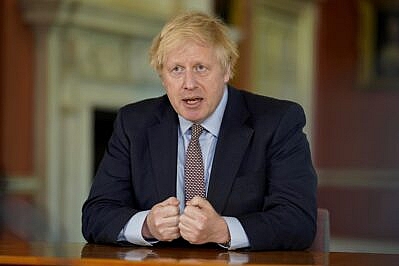UK Prime Minister Boris Johnson is in a precarious political position after he survived a no-confidence vote Monday by a closer than expected margin.
Summary
UK Prime Minister Boris Johnson is in a precarious political position after he survived a no-confidence vote Monday by a closer than expected margin.
- Conservative rebels tried to force out their party leader with a confidence vote, but Johnson prevailed by a vote of 211-148. Although he defeated the coup plotters, a staggering 148 MPs voting to fire their leader after barely 3 years in office is astounding.
- Johnson was informed of the internal party revolt just before he attended festivities in honor of Queen Elizabeth’s Platinum Jubilee celebrations.
- Johnson’s popularity has been battered by a series of controversies including: an investigation into lockdown-busting parties at work – the ‘partygate’ scandal – that led to police fines, allegations of corruption and sleaze in his government, and poor midterm election results.
- The Prime Minister vowed in a speech to Parliament on Wednesday to “get on with the job” and insisted his political career had “barely begun.”.
- Conservative Party rules state Johnson can’t face another confidence vote for 12 months, but the PM isn’t out of the woods yet. Johnson won by a slimmer margin compared to his Tory predecessors, who did not survive long after they faced confidence votes.
- Prime Ministers Margaret Thatcher and Theresa May won confidence votes by more substantial margins than Johnson, but both were forced to resign within six months. John Major won his confidence vote but lost the general election in a landslide less than two years later.
- Possible successors include: Jeremy Hunt, former Health Secretary and 2019 runner-up to Johnson; Foreign Secretary Liz Truss, the “darling of the grassroots”; millionaire Treasury chief Rishi Sunak; and Defense Secretary Ben Wallace, widely praised for his leadership on Ukraine.
![]()
- The New York Times noted Johnson still faces immediate political danger in the form of two critical by-elections (special elections to Parliament) in June, one in a working-class “red wall” seat that Johnson flipped in 2019 and the other in a traditional Tory stronghold. Polls show the Tories could lose both seats, which would further “stoke [the] internal crisis” in the party.
- The Washington Post chronicled Johnson’s fall from a landslide victory in 2019 to facing a confidence vote just 2.5 years later.
- The Guardian covered Johnson’s comments that “absolutely nothing and no one” will stop him from staying on as Prime Minister in response to withering criticism from the opposition Labour Party in the House of Commons.
![]()
- The Telegraph took readers behind the scenes to explain “how the knives came out for Boris” and the internal party dynamics that finally triggered the vote of no confidence in his leadership.
- The Daily Mail reported Johnson pled for unity among his party’s warring factions after one of his Cabinet ministers went on TV and leveled a rhetorical two-by-four against a Conservative “big beast” who backed the no-confidence vote.
- The Wall Street Journal covered Johnson’s attempts to refocus his government on Britain’s spiraling cost-of-living crisis, which is contributing to his sinking approval ratings.
© Dominic Moore, 2022






